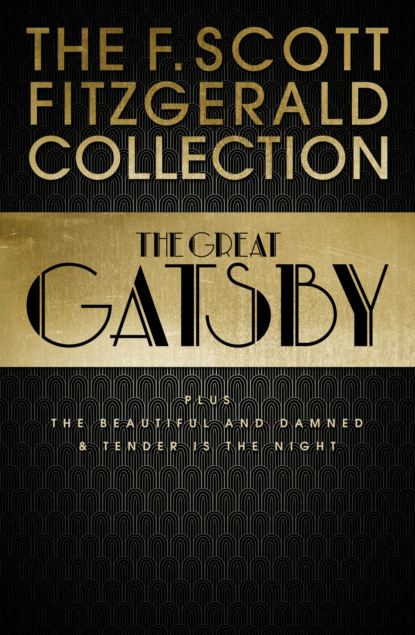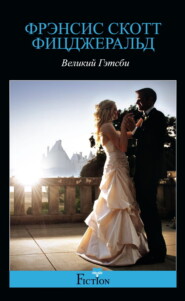По всем вопросам обращайтесь на: info@litportal.ru
(©) 2003-2024.
✖
F. Scott Fitzgerald Collection: The Great Gatsby, The Beautiful and Damned and Tender is the Night
Год написания книги
2019
Настройки чтения
Размер шрифта
Высота строк
Поля
“Then came the war, old sport. It was a great relief, and I tried very hard to die, but I seemed to bear an enchanted life. I accepted a commission as first lieutenant when it began. In the Argonne Forest I took two machine-gun detachments so far forward that there was a half mile gap on either side of us where the infantry couldn’t advance. We stayed there two days and two nights, a hundred and thirty men with sixteen Lewis guns, and when the infantry came up at last they found the insignia of three German divisions among the piles of dead. I was promoted to be a major, and every Allied government gave me a decoration – even Montenegro, little Montenegro down on the Adriatic Sea!”
Little Montenegro! He lifted up the words and nodded at them – with his smile. The smile comprehended Montenegro’s troubled history and sympathized with the brave struggles of the Montenegrin people. It appreciated fully the chain of national circumstances which had elicited this tribute from Montenegro’s warm little heart. My incredulity was submerged in fascination now; it was like skimming hastily through a dozen magazines.
He reached in his pocket, and a piece of metal, slung on a ribbon, fell into my palm.
“That’s the one from Montenegro.”
To my astonishment, the thing had an authentic look.
“Orderi di Danilo,” ran the circular legend, “Montenegro, Nicolas Rex.”
“Turn it.”
“Major Jay Gatsby,” I read, “For Valour Extraordinary.”
“Here’s another thing I always carry. A souvenir of Oxford days. It was taken in Trinity Quad – the man on my left is now the Earl of Doncaster.”
It was a photograph of half a dozen young men in blazers loafing in an archway through which were visible a host of spires. There was Gatsby, looking a little, not much, younger – with a cricket bat in his hand.
Then it was all true. I saw the skins of tigers flaming in his palace on the Grand Canal; I saw him opening a chest of rubies to ease, with their crimson-lighted depths, the gnawings of his broken heart.
“I’m going to make a big request of you today,” he said, pocketing his souvenirs with satisfaction, “so I thought you ought to know something about me. I didn’t want you to think I was just some nobody. You see, I usually find myself among strangers because I drift here and there trying to forget the sad thing that happened to me.” He hesitated. “You’ll hear about it this afternoon.”
“At lunch?”
“No, this afternoon. I happened to find out that you’re taking Miss Baker to tea.”
“Do you mean you’re in love with Miss Baker?”
“No, old sport, I’m not. But Miss Baker has kindly consented to speak to you about this matter.”
I hadn’t the faintest idea what “this matter” was, but I was more annoyed than interested. I hadn’t asked Jordan to tea in order to discuss Mr Jay Gatsby. I was sure the request would be something utterly fantastic, and for a moment I was sorry I’d ever set foot upon his overpopulated lawn.
He wouldn’t say another word. His correctness grew on him as we neared the city. We passed Port Roosevelt, where there was a glimpse of red-belted ocean-going ships, and sped along a cobbled slum lined with the dark, undeserted saloons of the faded-gilt nineteen-hundreds. Then the valley of ashes opened out on both sides of us, and I had a glimpse of Mrs Wilson straining at the garage pump with panting vitality as we went by.
With fenders spread like wings we scattered light through half Long Island City – only half, for as we twisted among the pillars of the elevated I heard the familiar “jug – jug – spat!” of a motorcycle, and a frantic policeman rode alongside.
“All right, old sport,” called Gatsby. We slowed down. Taking a white card from his wallet, he waved it before the man’s eyes.
“Right you are,” agreed the policeman, tipping his cap. “Know you next time, Mr Gatsby. Excuse me!”
“What was that?” I inquired. “The picture of Oxford?”
“I was able to do the commissioner a favor once, and he sends me a Christmas card every year.”
Over the great bridge, with the sunlight through the girders making a constant flicker upon the moving cars, with the city rising up across the river in white heaps and sugar lumps all built with a wish out of non-olfactory money. The city seen from the Queensboro Bridge is always the city seen for the first time, in its first wild promise of all the mystery and the beauty in the world.
A dead man passed us in a hearse heaped with blooms, followed by two carriages with drawn blinds, and by more cheerful carriages for friends. The friends looked out at us with the tragic eyes and short upper lips of south-eastern Europe, and I was glad that the sight of Gatsby’s splendid car was included in their sombre holiday. As we crossed Blackwell’s Island a limousine passed us, driven by a white chauffeur, in which sat three modish negroes, two bucks and a girl. I laughed aloud as the yolks of their eyeballs rolled toward us in haughty rivalry.
“Anything can happen now that we’ve slid over this bridge,” I thought; “anything at all …”
Even Gatsby could happen, without any particular wonder.
Roaring noon. In a well-fanned Forty-second Street cellar I met Gatsby for lunch. Blinking away the brightness of the street outside, my eyes picked him out obscurely in the anteroom, talking to another man.
“Mr Carraway, this is my friend Mr Wolfsheim.”
A small, flat-nosed Jew raised his large head and regarded me with two fine growths of hair which luxuriated in either nostril. After a moment I discovered his tiny eyes in the half-darkness.
“– So I took one look at him,” said Mr Wolfsheim, shaking my hand earnestly, “and what do you think I did?”
“What?” I inquired politely.
But evidently he was not addressing me, for he dropped my hand and covered Gatsby with his expressive nose.
“I handed the money to Katspaugh and I said: ‘All right, Katspaugh, don’t pay him a penny till he shuts his mouth.’ He shut it then and there.”
Gatsby took an arm of each of us and moved forward into the restaurant, whereupon Mr Wolfsheim swallowed a new sentence he was starting and lapsed into a somnambulatory abstraction.
“Highballs?” asked the head waiter.
“This is a nice restaurant here,” said Mr Wolfsheim, looking at the Presbyterian nymphs on the ceiling. “But I like across the street better!”
“Yes, highballs,” agreed Gatsby, and then to Mr Wolfsheim: “It’s too hot over there.”
“Hot and small – yes,” said Mr Wolfsheim, “but full of memories.”
“What place is that?” I asked.
“The old Metropole.”
“The old Metropole,” brooded Mr Wolfsheim gloomily. “Filled with faces dead and gone. Filled with friends gone now forever. I can’t forget so long as I live the night they shot Rosy Rosenthal there. It was six of us at the table, and Rosy had eat and drunk a lot all evening. When it was almost morning the waiter came up to him with a funny look and says somebody wants to speak to him outside. ‘All right,’ says Rosy, and begins to get up, and I pulled him down in his chair.
“‘Let the bastards come in here if they want you, Rosy, but don’t you, so help me, move outside this room.’
“It was four o’clock in the morning then, and if we’d of raised the blinds we’d of seen daylight.”
“Did he go?” I asked innocently.
“Sure he went.” Mr Wolfsheim’s nose flashed at me indignantly. “He turned around in the door and says: ‘Don’t let that waiter take away my coffee!’ Then he went out on the sidewalk, and they shot him three times in his full belly and drove away.”
“Four of them were electrocuted,” I said, remembering.
“Five, with Becker.” His nostrils turned to me in an interested way. “I understand you’re looking for a business gonnegtion.”
The juxtaposition of these two remarks was startling. Gatsby answered for me:
“Oh, no,” he exclaimed, “this isn’t the man.”

















